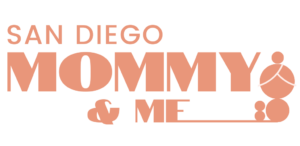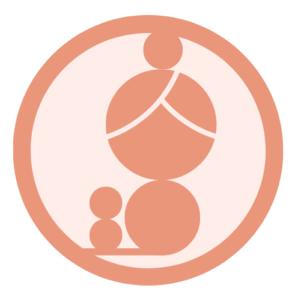Honoring Your Experience
After going over the group format, some guidelines and policies, and providing a little insight into my “why?” and background, we jumped into an icebreaker activity designed to help us get to know each other. In doing so, we began to touch on one of motherhood’s most unexpected, yet overarching themes…
Motherhood is full of conflicting emotions and priorities.
But don’t take my word for it! Reproductive Psychiatrist, Dr. Alexandra Sacks, produced a Tedtalk on the subject that resonated with so many it instantly went viral. In this talk Dr. Sacks beautifully normalizes the complexities of this internal “push” and “pull” and why it causes us so much distress.
As we began to navigate all the universal and individual ways this truth has shown up in each of your motherhood journeys, I highlighted the importance of accepting your FULL experience (i.e. the ups, downs, and in-betweens). However, like many things, this is easier said than done, which brings us to…
Tips, Tools, & Tricks
Get in the habit of frequently observing your thoughts and emotions. While doing so, interrupt the impulse to judge or react. Like a scientist collecting data, for now, let your experience be what it is and just focus on making a mental note about all you are observing.
Here’s how:
Tips
If your new to the life changing practice of acceptance, don’t panic. Motherhood is a catalyst for self-exploration and personal-growth so there is no better time to start! Bonus: You’ll be able to pass down your new skills to your little one, which is arguably one of the greatest gift one can give 🙂
STEP 1:
To better understand what is being asked of you, read The 5 Things Everyone Should Know About Acceptance. It does a great job providing an overview on what acceptance is and what acceptance is not.
STEP 2:
Get curious and intentional about checking in with yourself. Here is a specific exercise you can try:
Take a moment to sit calmly today for 5-10 minutes and remind yourself of a strong negative emotion or recent struggle (you can also do this in the moment if you have the opportunity). As you sit, similar to the way you empty your brain by creating a to-do list, simply observe and list out your thoughts and feeling without trying to fix them or ruminate over them. When the impulse to judge or react comes up, simply add those to the observation list and continue on. There’s a space that opens up for yourself when you don’t react to or judge your experience.
Tools
Motherhood is not an emotional rollercoaster. Motherhood is a million mini emotional rollercoaster rides within one giant marathon of a rollercoaster ride. To best honor the FULL experience, make an conscious effort to identify your brain’s attempts to react (avoid/fix) or judge/shame the harder to feel truths (those unwanted or uncomfortable emotions, experiences, and challenges).
For example, in motherhood I’ve noticed there is a lot of pressure to embrace toxic positivity, and that our inner critics gets the loudest when we get sucked into ridged and/or black and white thinking. These thought patterns are largely automatic, but taking a moment to know what each of these look like will help you better identify how they are showing up for you and when they are preventing you from honoring your full experience.
High-level cliff notes (click on each terms for examples of each):
Rigid Thinking – Getting overly stuck on one viewpoint, thought, emotion, outcome, or expectation. It results in an inability to change your mind when all signs point to a change of mind. It also implies an inability to see a situation from a different point of view.
Black and White Thinking – The tendency to think in extremes: Breastfeeding was either a incredible success or a utter failure. It results in us being unable to find the middle ground. It implies an inability to see the world as it often is: complex, nuanced, and full of all the shades in between.
Toxic Positivity – Putting a positive spin on all experiences, even those that are profoundly tragic. It results in silencing negative emotions, demeaning grief, and deterring people from emotional processing and seeking social support. It implies an inability to tolerate and communicate the negative thoughts and emotions.
Tricks
Embrace the “AND/BOTH” preceptive – Instantly challenge rigid and black and white thinking by practicing this simple reframe. HERE great example of how to apply the “and/both” skill to accept our FULL emotional experience.
Lean on your mom-friends – When it comes to motherhood, the safe and supportive friendship you develop with other moms will make it easier for you to accept the innate highs and lows that come with the role. Here is a perfect examples of two moms allowing themselves to identify, accept, laugh at, and connect in the hard parts of postpartum. Introducing: I Mom So Hard
Additional Deep Dives
Navigate your experience: Articles and resources related to topics covered in group
Motherhood after infertility – As much as we may want it to, a happy ending doesn’t erase the pain of infertility. HERE is a potentially relatable story, and HERE is a great sourced overview of how it may show up in motherhood.
Birth. It doesn’t always go as planned – The opportunity to talk about, and perhaps grieve, your labor or birth gives your brain the chance to understand the magnitude of the physical/emotional experience. If needed, THIS article or THIS guide, created by my good friend and colleague, can help.
Avoid weaponizing gratitude – Gratitude is ideal when used to counter the never-ending future “what-if’s” of motherhood that interfere with our current successes or joys (i.e. What if he stops sleeping through the night → I’m thankful he is currently sleeping through the night). Gratitude can be harmful when it minimizes the pain tied to our experience (I had a miscarriage → At least I know I can get pregnant). HERE is a great article that lays out the difference.
Normal Hard verse PMADs’ Hard
Your Experience Matters
In normalizing the “hard” that comes with motherhood, I want to be very careful not to accidentally normalize or minimize experiences that may indicate the presence or onset of VERY COMMON mental health conditions known as Perinatal Mood and Anxiety Disorders (PMADs).
Easier said than done… identifying PMADs is tricky because, when it comes to mental health, it’s not about the presents of hard, uncomfortable, or intrusive emotions and/or thoughts (these are expected), but the duration, intensity, and frequency of these experiences. For example, unlike physical health where you either are or are not pregnant, mental health conditions exist on a spectrum (i.e. Typical, Mild, Moderate, and Serve). HERE is a helpful article that does a good job highlighting some common distinctions between “typical” postpartum distress and PMADs’ distress.
Best Line of Defense: YOU
Often our emotions can feel so big, that we assume they might as well be written across our forehead. Still, from the outside, often is it nearly impossible to tell when someone is struggling. That’s why YOUR efforts to effectively monitor your wellbeing are essential.
Educating yourself on the who, what, when, where, and why of PMADs will empower you to best prevent and/or respond as needed.
Next Steps: Prevention and Early Intervention of PMADs
Step 1: Review these FAQs of PMADs. I wrote these up for the San Diego Postpartum Health Alliance (PHA). This quick read should give you the information needed to effectively monitor your mental health.
Step 2: Screen yourself (and your partner!) regularly throughout the first year. HERE is a link to two self-assessment tools you can use to objectively screen for both Postpartum Depression and Postpartum Anxiety.
Step 3: Seek individualized support as needed.
Our group is absolutely a safe place to bring up and process PMADs. In fact, psycho-education and peer support have been proven to prevent and reduce symptoms of PMADs. Still, individualized treatment/support, medication, or additional resources may be warranted.
PHA’s online Directory and PsychologyToday.com are my go-to resources for identifying individual providers.
LASTLY… Please feel free to contact me privately to inquire about PMADs or anything else you don’t feel comfortable bringing up in the group. I’m here for you however needed and happy to connect you to whatever you might need!

